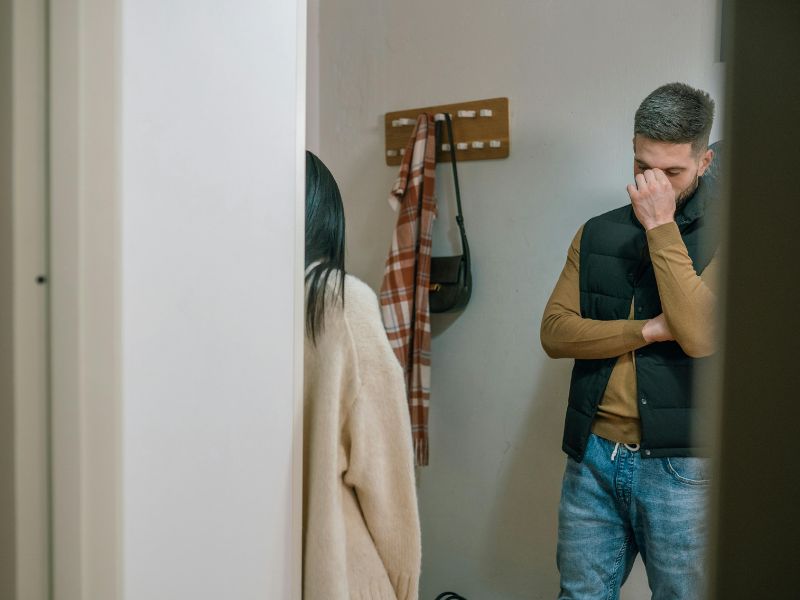Relationships are meant to be safe spaces—sources of love, support, growth, and joy. However, not all relationships are built on mutual respect and understanding. Some are marked by emotional turbulence, manipulation, and control. These are toxic relationships that are more common than many of us realize.
Whether romantic, platonic, or familial, toxic relationships can silently drain a person’s self-worth and peace of mind. They leave behind emotional scars that are often invisible to the outside world. Understanding what makes a relationship toxic, recognizing the red flags, and learning how to navigate the road to recovery are essential steps toward reclaiming one’s life and emotional health.
Let’s dive deeper into what toxic relationships really are, how to spot them, what effects they leave behind, and how healing is not just possible—but necessary.
The Nature of Toxic Relationships
A toxic relationship is one where the dynamic consistently undermines your sense of well-being. It’s not just about having occasional disagreements or going through tough phases—every relationship has its ups and downs. But in a toxic one, these issues are persistent, pervasive, and damaging.
What sets toxic relationships apart is the presence of chronic negativity, manipulation, disrespect, and often, emotional or psychological control. They can make you feel small, anxious, or as though you’re constantly treading carefully just to keep the peace.
Unlike healthy relationships that nurture mutual growth, toxic relationships feed insecurity, fear, and dependence. And over time, this dysfunction can become so normalized that one might not even realize they’re caught in a harmful cycle.
Key Characteristics of Toxic Relationships
Understanding the common traits of toxic relationships can help individuals identify when something isn’t right.
- Power Imbalance
One partner often dominates the relationship—making all the decisions, dictating the terms, and leaving the other feeling voiceless. This imbalance creates a toxic dynamic where compromise and mutual respect are absent. - Emotional Harm
Hurtful comments, manipulation, neglect, and belittling remarks gradually wear down a person’s mental well-being. Constant criticism or emotional games can leave you feeling unworthy or confused. - Poor Communication
Communication in toxic relationships often involves passive-aggressive comments, sarcasm, stonewalling, or yelling. Rather than fostering understanding, communication becomes a battlefield. - Control and Coercion
Whether subtle or overt, control is a major red flag. It can show up as one partner dictating what the other wears, who they talk to, or how they spend their time. Over time, this breeds resentment and suffocation. - Dishonesty and Distrust
Lies—big or small—chip away at the foundation of any relationship. Dishonesty in a toxic relationship often comes with gaslighting, denial, or shifting blame. - Lack of Support and Encouragement
Instead of being your biggest cheerleader, a toxic partner may downplay your achievements or fail to support your goals. This emotional void creates loneliness even in the presence of another person. - Walking on Eggshells
When you’re constantly worried about upsetting the other person or triggering their mood, it’s a clear sign something’s wrong. Healthy relationships allow for openness without fear of retaliation.

Signs You May Be in a Toxic Relationship
Toxic relationships don’t always announce themselves with grand gestures of harm. Sometimes, it’s the subtle patterns that build up over time. Here are some warning signs to look out for:
- You feel drained after interactions, rather than uplifted.
- You second-guess yourself constantly or feel like nothing you do is right.
- You’ve lost touch with your own identity, passions, or support systems.
- Your partner mocks, ignores, or invalidates your feelings.
- You experience more anxiety than peace in the relationship.
- There is an ongoing lack of accountability and a refusal to change.
Recognizing these signs is a crucial first step toward healing.

The Emotional and Physical Effects of Toxic Relationships
Toxic relationships don’t just affect your heart—they affect your mind, body, and future relationships. The effects can be long-lasting and, at times, traumatic.
- Emotional Instability
Constant exposure to stress, criticism, or gaslighting can lead to anxiety, depression, and emotional exhaustion. You may feel like you’re constantly in survival mode. - Low Self-Esteem
Being consistently undermined or dismissed chips away at your confidence. Over time, you may begin to question your worth and capabilities. - Physical Symptoms
Stress from toxic dynamics can manifest physically—headaches, digestive issues, fatigue, and even chronic pain. The body often responds to emotional distress in ways we don’t always recognize. - Relationship Trauma
Toxic experiences can shape your views of love and trust, making it difficult to engage in future relationships. You might become overly guarded, suspicious, or fearful of intimacy. - Social Withdrawal
Toxic partners often isolate you from friends and family, either directly or through manipulation. This isolation makes it harder to seek help or gain perspective on the situation.

Steps Toward Healing and Recovery
Recovery is a journey—one that requires time, patience, and a lot of self-compassion. But it’s a journey worth taking.
- Acknowledge the Reality
The first step is acceptance. Denial often keeps people stuck. Naming the situation for what it is—toxic—can be incredibly empowering. - Seek Support
You don’t have to go through it alone. Talk to trusted friends, family, or a support group. Sometimes, just verbalizing your experience is the beginning of clarity and healing. - Set and Maintain Boundaries
Learn to say no. Learn to walk away. Establish what is acceptable and what isn’t. Boundaries are not walls; they are bridges to healthier connections. - Engage in Self-Care
Reconnect with yourself. Take long walks, journal, sleep, eat well, travel—do what makes you feel alive again. Self-care isn’t indulgent; it’s necessary. - Seek Professional Help
Therapy can offer a safe space to untangle your emotions, process trauma, and rebuild your self-worth. A therapist can also help you develop healthier relational patterns. - Reflect and Rebuild
Take time to evaluate the lessons from the experience. What did you learn about yourself? What red flags did you ignore? Use those insights as fuel for your personal growth.

Conclusion
Toxic relationships can feel all-consuming, but they do not define you. They are not the end of your story.
By learning to recognize the signs, understanding their impact, and taking intentional steps toward healing, you can break free from the grip of toxicity. Recovery may not be linear, but every small step you take is a victory. And as you heal, you’ll find that healthy, empowering relationships—ones where you are seen, heard, and valued—are not just possible; they are what you deserve.
Your peace, happiness, and healing matter. Always.







